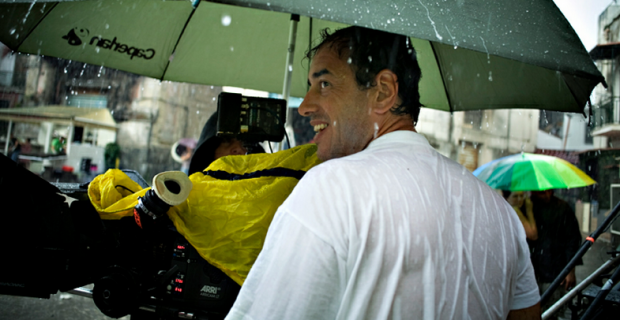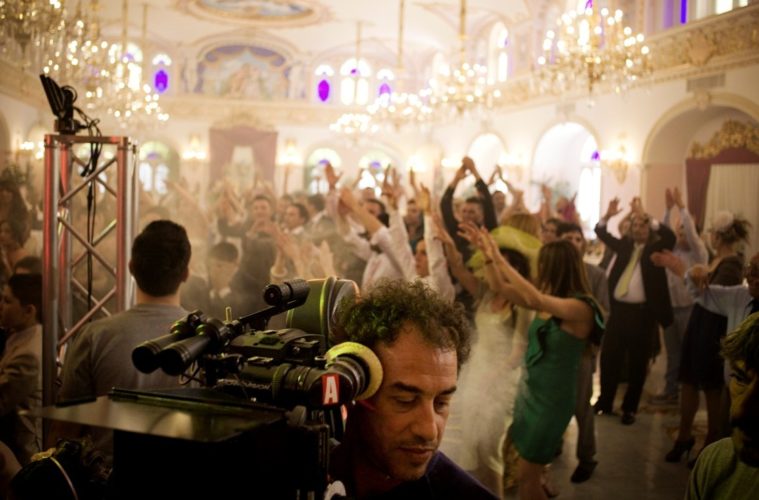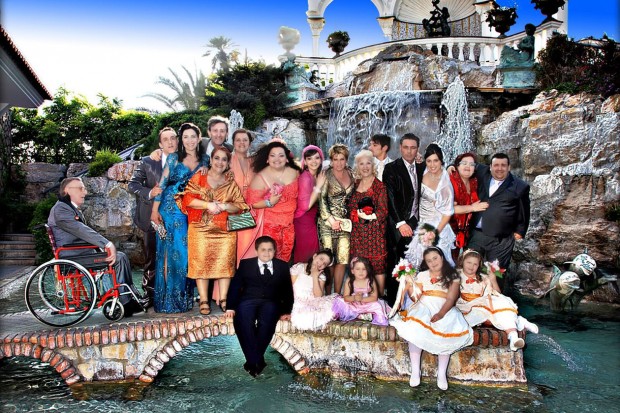Matteo Garrone‘s Reality is like a breath of fresh air, taking a disturbing look at celebrity and our cultural obsession with those we see on a TV and silver screen. Premiering at Cannes Film Festival last year, the film is equal parts thrilling and sad. Earlier this month I had a chance to speak with the director and get his thoughts on casting someone who is currently serving a life-time prison sentence, the MacGuffin in the film, how much research he did into “Big Brother,” and his lengthy tracking shots that set it apart. Check out our conversation below, with the responses coming from Garrone’s translator.
The most striking thing about this film is all of the tracking shots and the long takes that are employed. I imagine they’re complicated or is it a kind of the thrill, the challenge of that?
No, it’s a big challenge to do long take, so I never get tired. Of course, sometimes we work a lot to succeed but I don’t know why I decided to make the long shots honestly. But, it’s something that was for me, to me, natural when I started to tell this story. I can’t answer why we decided those shots, but it was very interesting.
I know that the lead actor, he is actually serving a life-time prison sentence…
Yes.
..and so when you cast him, did you have everybody else in place already or did you bring them on and was there any hesitation on their part?

No, no, no. No, all the cast comes from theater and also Aniello Arena is an actor that comes from theater. Of course, it’s a company of prisoners. So he played in prison, but he’s an actor. So, I cast him because he was an actor; and he had really great relationships with all the other actors during the shooting.
Nobody was intimidated by that or anything?
No, no, not at all. Certainly not. They were a big family.
Why do you keep coming back to Naples? Is it just familiarity?
Well, after Gomorrah, I wanted to move and go away, but then I heard about this story that was a true story. So [with] this story happening in Naples again, I decided to go back there and shoot this other movie. That’s why I came back, to remain faithful to the place where the story happened.
How familiar were you with the process of “Big Brother” and things like that? Or did you have to do a lot of research beforehand?
Well we did some research, but I don’t think it’s very important, “Big Brother” in the movie — it can be “Big Brother,” or it can be something else. So, yes, we made some research to be faithful, to make a reconstruction believable of the “Big Brother,” but without thinking that it’s important. It’s a place that he wants to reach, but it’s not important, the place. The important aspect and tragic aspect is they follow their desire, their dreams. So it’s about the risk of dreams, it’s about the illusion. The movie is about the desire to escape from everyday life.
One of the most interesting things about the film, there’s not a lot of exposition given to the little robots they seem to be smuggling around. What’s the story behind those? I can only assume that those aren’t real.
The story is based on a true story, so most of the story of the robot we invent. The fraud was important. It was interesting to show how the character of Luciano changed during the story. You see in the beginning he’s really attached to the money and then after, he became a saint, a philanthropist. He hoped to reach his goal. So this aspect, this change, is very important. It’s always very complicated in cinema to explain a fraud because to be a fraud it has to be very complex. We didn’t want to spend too much time to explain something that is not so important to the story.
Throughout the film, it plays on this idea of your main character basically waiting on a phone call, waiting to hear back. I think it’s fair to say we’ve all gone through a similar situation where we’re waiting on something to happen. Does it drive you a little crazy too?
Yeah, maybe not a phone call, but maybe the feelings. The sensation, the feelings, that I won’t be satisfied for what I have and I desire something more. It’s something that I felt, so I can understand the character. And not just the character, I can understand the family, their wants. At the same time I understand, but at the same time, I feel that it’s very dramatic and very sad, because they have everything but they want to escape. They want to follow these artificial ties. So that is something that is connected to the society that we live [in]. So I’m part of this society. I understand and have other relationships with these characters.

Reality hits theaters Friday, March 15th.



